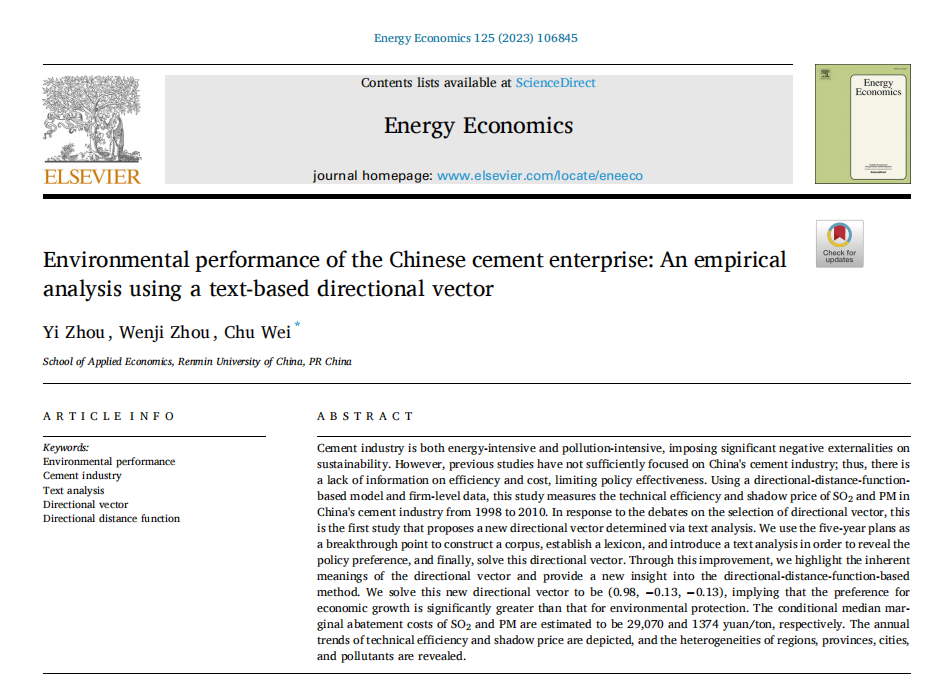Dr. Wenji Zhou and Chu Wei recently had a paper published in the Energy Economics. The paper titled‘ Environmental performance of the Chinese cement enterprise: An empirical analysis using a text-based directional vector’, was coauthored with Yi Zhou from School of Applied Economics, Renmin University of China.

Abstract
Cement industry is both energy-intensive and pollution-intensive, imposing significant negative externalities on sustainability. However, previous studies have not sufficiently focused on China's cement industry; thus, there is a lack of information on efficiency and cost, limiting policy effectiveness. Using a directional-distance-function-based model and firm-level data, this study measures the technical efficiency and shadow price of SO2 and PM in China's cement industry from 1998 to 2010. In response to the debates on the selection of directional vector, this is the first study that proposes a new directional vector determined via text analysis. We use the five-year plans as a breakthrough point to construct a corpus, establish a lexicon, and introduce a text analysis in order to reveal the policy preference, and finally, solve this directional vector. Through this improvement, we highlight the inherent meanings of the directional vector and provide a new insight into the directional-distance-function-based method. We solve this new directional vector to be (0.98, − 0.13, − 0.13), implying that the preference for economic growth is significantly greater than that for environmental protection. The conditional median marginal abatement costs of SO2 and PM are estimated to be 29,070 and 1374 yuan/ton, respectively. The annual trends of technical efficiency and shadow price are depicted, and the heterogeneities of regions, provinces, cities, and pollutants are revealed.
Other information
Publication Date:2023
Journal: Energy Economics
DOI:https://doi.org/10.1016/j.eneco.2023.106845